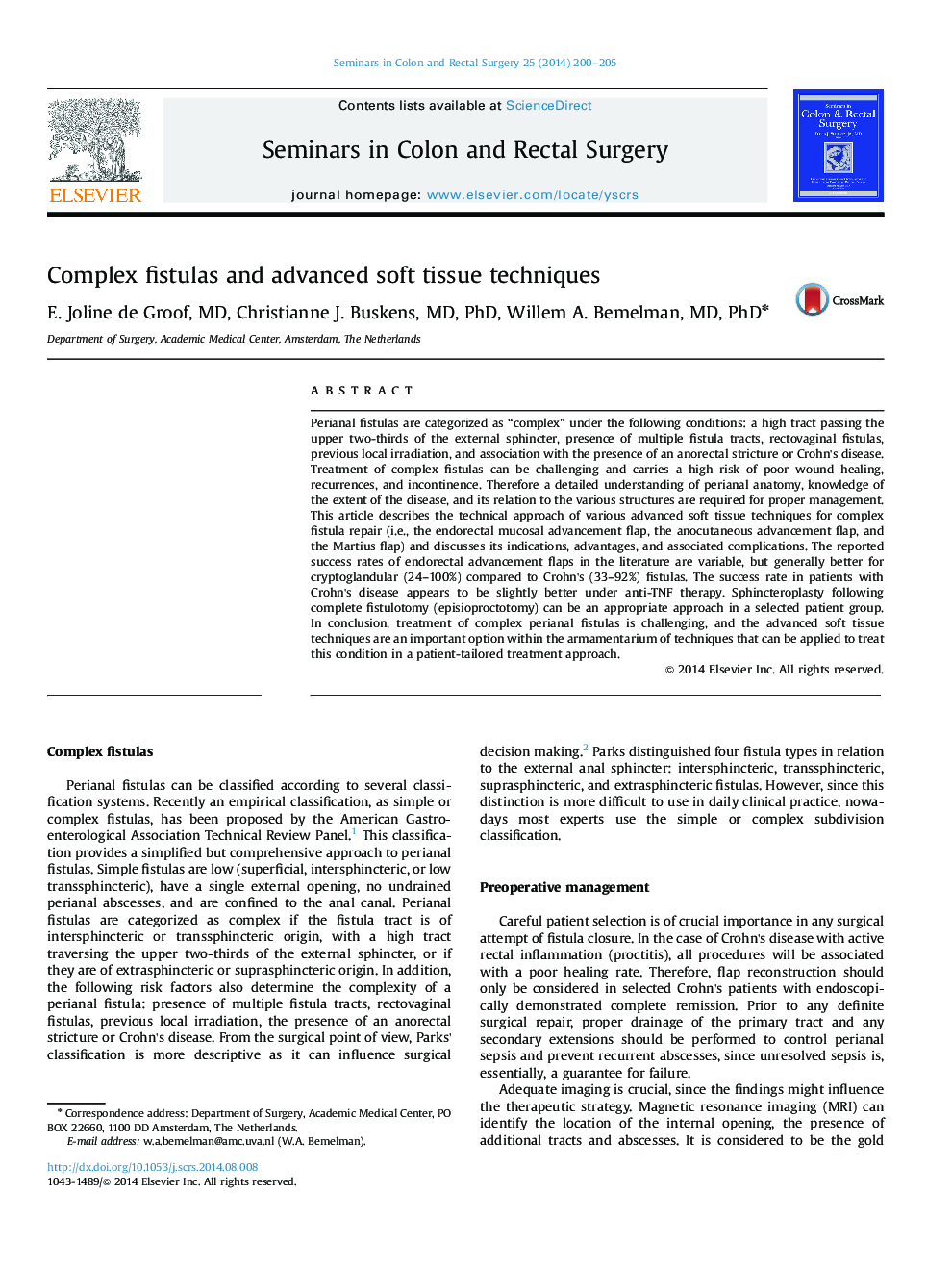| Article ID | Journal | Published Year | Pages | File Type |
|---|---|---|---|---|
| 3319236 | Seminars in Colon and Rectal Surgery | 2014 | 6 Pages |
Perianal fistulas are categorized as “complex” under the following conditions: a high tract passing the upper two-thirds of the external sphincter, presence of multiple fistula tracts, rectovaginal fistulas, previous local irradiation, and association with the presence of an anorectal stricture or Crohn׳s disease. Treatment of complex fistulas can be challenging and carries a high risk of poor wound healing, recurrences, and incontinence. Therefore a detailed understanding of perianal anatomy, knowledge of the extent of the disease, and its relation to the various structures are required for proper management. This article describes the technical approach of various advanced soft tissue techniques for complex fistula repair (i.e., the endorectal mucosal advancement flap, the anocutaneous advancement flap, and the Martius flap) and discusses its indications, advantages, and associated complications. The reported success rates of endorectal advancement flaps in the literature are variable, but generally better for cryptoglandular (24–100%) compared to Crohn׳s (33–92%) fistulas. The success rate in patients with Crohn׳s disease appears to be slightly better under anti-TNF therapy. Sphincteroplasty following complete fistulotomy (episioproctotomy) can be an appropriate approach in a selected patient group. In conclusion, treatment of complex perianal fistulas is challenging, and the advanced soft tissue techniques are an important option within the armamentarium of techniques that can be applied to treat this condition in a patient-tailored treatment approach.
